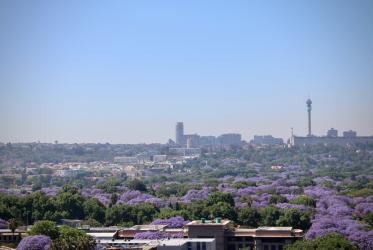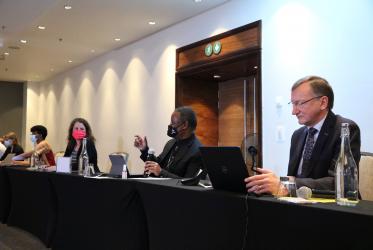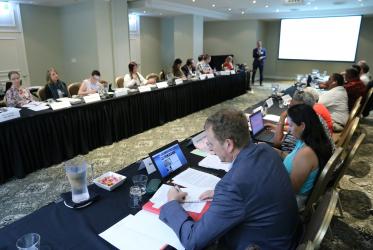Displaying 1 - 20 of 20
World mourns loss of Archbishop Desmond Tutu
30 December 2021
In Syria and Iraq, minorities must come out of the darkness
28 November 2016
New Executive Committee members elected in Trondheim
28 June 2016
Fleeing from – rather than to – a place
10 February 2016
WCC urges responsibility for and support to the refugees in Europe
04 September 2015












